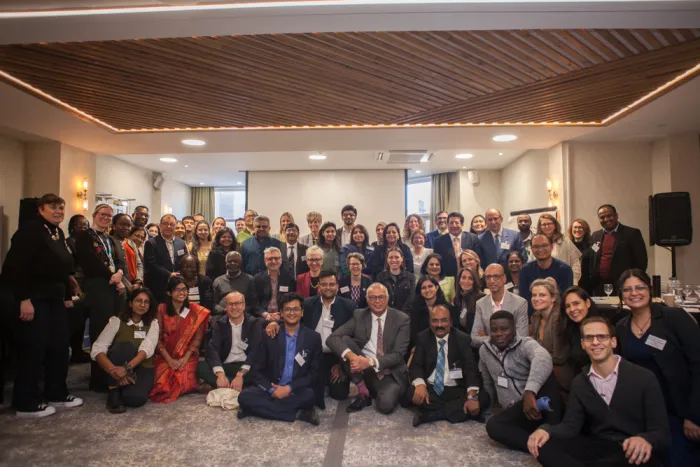
Focusing on the theme Research Capacity Strengthening, the National Institute for Health and Care Research (NIHR) Global Health Research Centres symposium 2025, which was co-hosted by the University of Leicester and Public Health Foundation of India, took place at the Belmont Hotel from April 1 to April 3.
Involving more than 24 institutions across the UK and 12 Low- and Middle-Income Countries (LMICs), including Bolivia, Colombia, Guatemala, India, Nepal, Afghanistan, Pakistan, Bangladesh, Indonesia, Burkina Faso, Ghana and Niger, the symposium provided a valuable opportunity for knowledge exchange between the five NIHR Global Health Research Centres as the event marked the mid-point of their collective journey.
More than 85 delegates shared knowledge and experiences of doing research on interventions to manage non-communicable disease in their settings, and how to plan to sustain these activities in the future.
The focus of the symposium was knowledge sharing, networking, problem solving, capacity building, community engagement and involvement, collaboration and inter-centre cooperation and sustainability.
Guests were welcomed by the host centre co-directors, Professors Kamlesh Khunti (Director of NIHR ARC East Midlands) and Dorairaj Prabhakaran, with opening remarks from the Director of the NIHR Global Health Research Programme, Professor Kara Hanson, and the NIHR’s Assistant Director of Global Health Research, Dr Nicola Commander.
Key highlights on day one included panel discussions on knowledge sharing, effective project management, and stimulating cross learning.
During a session chaired by Professor Khunti, Professor Marian Knight - Director of NIHR’s Programme Grants for Applied Research and Scientific Director for NIHR Infrastructure - and Professor Hanson discussed how models of practice in LMICs could be relevant for the UK.
They agreed that the UK and LMICs have many common health problems, and that UK health researchers and policymakers should include evidence generated in LMICs when they are looking for potential solutions to health problems. Reciprocal learning must be fostered for mutual growth via knowledge facilitation, innovation, and adaptation of practical solutions across diverse contexts.
Professor Khunti stated: “While developed countries often contribute advanced technologies, research infrastructure, and policy frameworks, developing countries bring valuable insights from community-based interventions, cost-effective delivery models, and adaptive strategies which are tailored to resource-limited settings.”
On day two, each centre explained how they are meeting their research, capacity strengthening and community engagement goals, and identified shared challenges and potential solutions.
Early career researchers were also given the opportunity to showcase their research presentations and demonstrate new work to delegates.
Professor Hanson said: “This second annual symposium for the NIHR Global Health Research Centres provided a fantastic opportunity for international researchers to come together, share their expertise and experiences, and provide leadership as we work to tackle non-communicable diseases and expand research capacity.
“I look forward to seeing how the Centres take forward their work over the coming year, and would like to thank the University of Leicester and Public Health Foundation of India for co-hosting such a successful event.”
